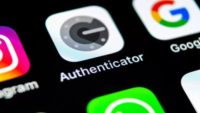The controversial facial recognition company Clearview AI reportedly told investors that it aims to collect 100 billion photos—supposedly enough to ensure that almost every human will be in its database. “Clearview AI is telling investors it is on track to have 100 billion facial photos in its database within a year, enough to ensure ‘almost everyone in the world will be identifiable,’ according to a financial presentation from December obtained by The Washington Post,” the Post reported today. There are an estimated 7.9 billion people on the planet. Read full…
Read MoreCategory: World
Today Is Data Privacy Day. Here’s What You Need To Do To Secure Your Info | c|net
here’s no shortage of made-up national holidays. Among the fabricated celebrations: Houseplant Appreciation Day, Irish Coffee Day and Bubble Wrap Day. However, there is one such holiday actually worth observing: Data Privacy Day, which happens to be today. It’s a good reminder to check up on the safety of your personal data. The holiday began in the US and Canada back in 2008. It’s an extension of a European holiday marking 1981’s Convention 108, the first legally binding international treaty on protecting privacy and data. Read full story here: Today…
Read MoreDo You Use One Of The 20 Most Common Passwords In Canada? | CTV News
TORONTO — Cybersecurity company NordPass, which sells password managements services, has published its list of the top 200 most common passwords in Canada and says too many Canadians are using passwords that can be easily guessed. This year’s list of most common passwords in Canada was topped by the usual suspects, such as “password,” “qwerty,” “abc123” and different variations of “123456.” These passwords also dominated the list of most common passwords in other countries and around the world. Read full story here: Do You Use One Of The 20 Most Common Passwords…
Read MoreYour Time Management Won’t Work Until You Realize How Little Time You Have | Mashable
Let us assume, dear reader, that you are young and healthy and lucky enough to live a total of 80 years. Doesn’t sound too bad, right? Break it down into days and you get 29,200, which is such a large number that our brains tend to give up trying to process what it means. But divide 80 years into weeks, and you get 4,171. Now we’re getting somewhere that sounds uncomfortably small, even for the longest-lived among us. (The current record holder, age 118, has lived less than 6,200 weeks…
Read MoreApple Says It Will Refuse Gov’t Demands To Expand Photo-scanning Beyond CSAM | Arstechnica
Apple today said it will refuse any government demands to expand its new photo-scanning technology beyond the current plan of using it only to detect CSAM (child sexual abuse material). Apple has faced days of criticism from security experts, privacy advocates, and privacy-minded users over the plan it announced Thursday, in which iPhones and other Apple devices will scan photos before they are uploaded to iCloud. Many critics pointed out that once the technology is on consumer devices, it won’t be difficult for Apple to expand it beyond the detection…
Read MoreGoogle Is Finally Trying To Kill Passwords — Here’s How | Tom’s Guide
Google will soon make two-factor authentication (2FA) mandatory for all Google accounts. From May 10, Google will ask people who have enrolled in two-step verification (2SV) (the abbreviation Google uses) to confirm it’s really them with just a tap of a Google prompt on their phone. “Soon we’ll start automatically enrolling users in 2SV if their accounts are appropriately configured,” added Mark Risher, director of Product Management, Identity and User Security at Google. Read full story here: Google Is Finally Trying To Kill Passwords — Here’s How | Tom’s Guide
Read MoreAfrica and the Americas Pay the Most for the Worst Internet Service | PC Magazine
Internet connectivity can be expensive, especially when you upgrade your plan to get the best connection possible. Some areas in the United States pay as high as $7 per megabit. But what if you had a bad connection? How much would you still be willing to pay? According to Surfshark, the worst internet in the world is also the least affordable. Using information from the Digital Quality of Life index, Surfshark was able to determine that the regions that pay the most for internet also receive the worst-quality connections. Oceania…
Read MoreHow Law Enforcement Gets Around Your Smartphone’s Encryption | Ars Technica
Lawmakers and law enforcement agencies around the world, including in the United States, have increasingly called for backdoors in the encryption schemes that protect your data, arguing that national security is at stake. But new research indicates governments already have methods and tools that, for better or worse, let them access locked smartphones thanks to weaknesses in the security schemes of Android and iOS. Read full story here: How Law Enforcement Gets Around Your Smartphone’s Encryption | Ars Technica
Read MoreGoogle And Apple Are Banning Technology For Sharing Users’ Location Data | The Verge
You may have never heard of the company X-Mode Social, but its code may be in some of the apps on your phone, tracking and selling your location data. Now, Google and Apple are trying to put a stop to it. According to a Wall Street Journal article, the tech companies have told developers to remove X-Mode’s code from their apps, or risk getting them pulled from their respective app stores. X-Mode works by giving developers code to put into their apps, known as an SDK, which tracks users’ location and then…
Read MoreWindows 10 Is Installing Office Web Apps Without Asking Permission | Engadget
Mandatory Windows 10 updates aren’t new, but the latest example is raising a few hackles. Windows Latest, ZDNet, The Verge and users are reporting that Windows 10 is force-restarting PCs to install links to Office web apps that launch in Edge, including in the Start menu. And despite initial reports, this isn’t limited to Insider members — people using standard Windows 10 releases have seen the change as well. The apps take up no storage or other resources. Until now, though, installing Office web apps was optional. Windows isn’t asking for your permission, let alone informing you of…
Read More









